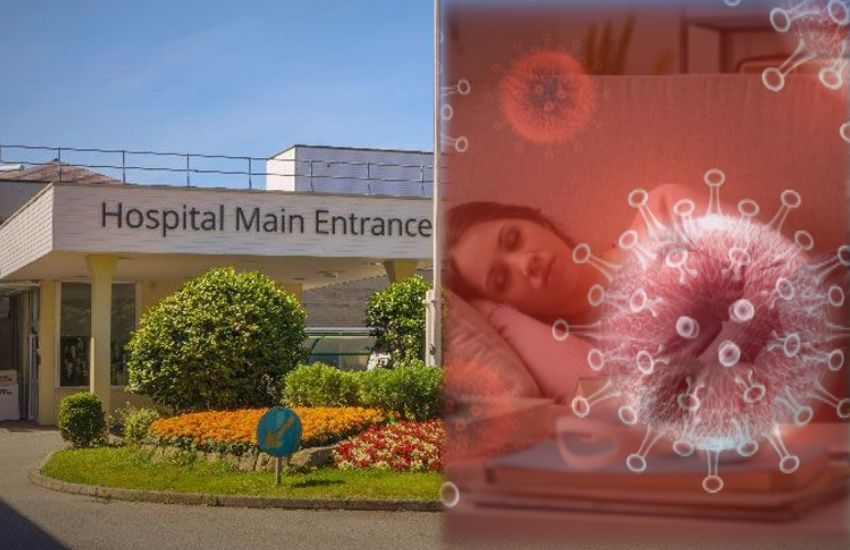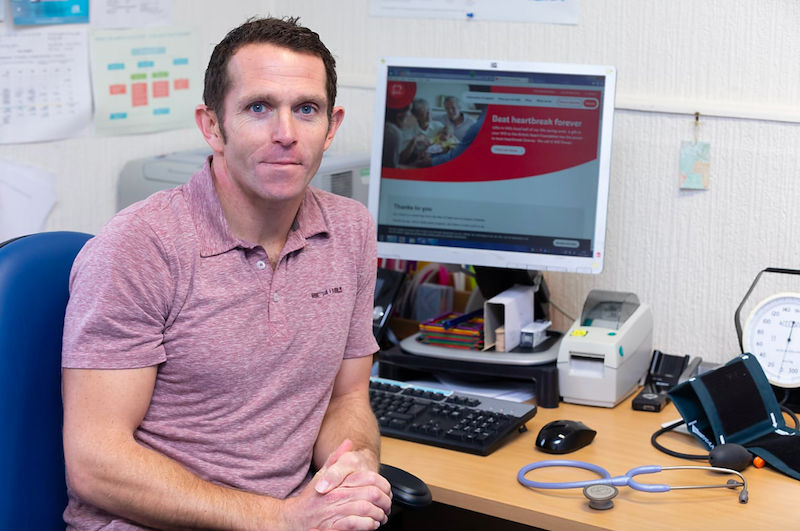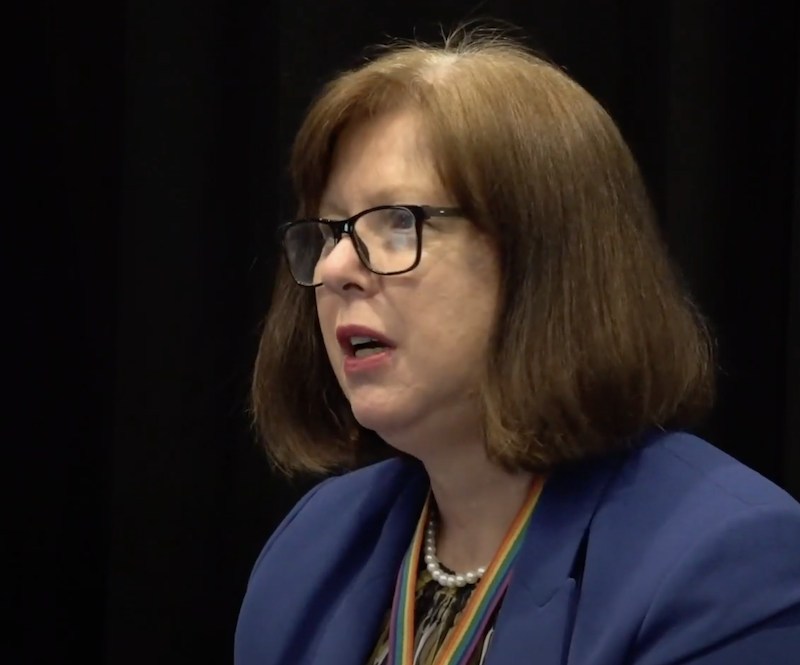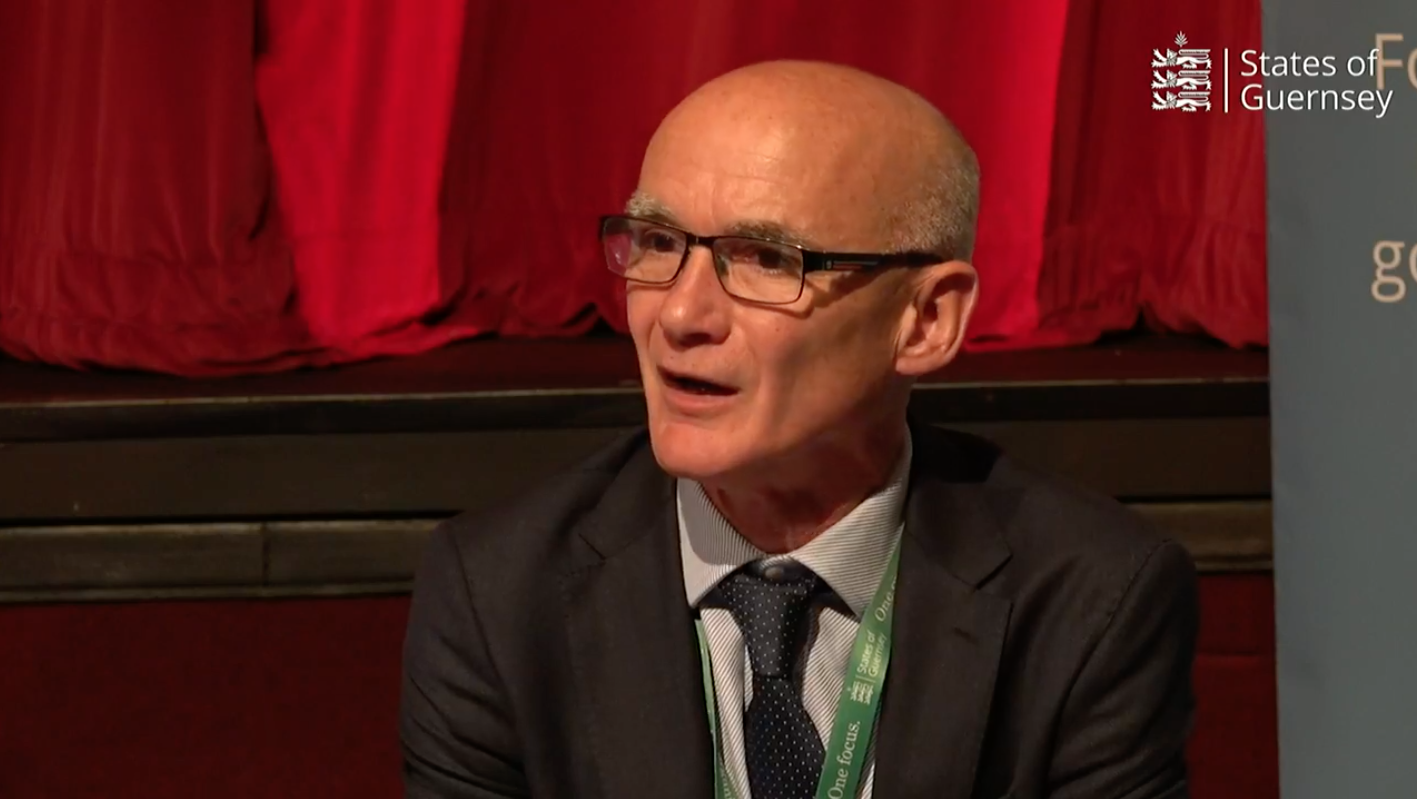


The Bailiwick's public health leaders and most GPs are recording low levels of long covid.
Long covid is defined as symptoms of covid persisting more than 12 weeks after infection. Symptoms lasting between four and 12 weeks after infection is defined as ongoing covid.
The World Health Organisation (WHO) continues to develop its understanding of long covid and its impact on patients.
Senior health professionals in the Bailiwick say they are encouraged by their experiences locally.

Pictured: Dr Mat Dorrian, a GP at Queens Road Medical Practice, said it is widely understood that some patients can take time to recover from viral infections, including but not limited to covid-19.
“We as GPs have known for many years that some patients will get an infection and take a long time to recover," said GP Dr Mat Dorrian.
He said doctors have not "come up with definitive physiological reasons for why it happens".
"By understanding what is happening with long covid, we might be able to understand what happens with other viruses that give ongoing symptoms.
“The WHO is recommending good research into long covid, which will let us understand covid more and other conditions that can cause prolonged symptoms."

Pictured: Dr Nicola Brink, Medical Officer of Health.
In February 2021, public health officials in the Bailiwick sought to further their understanding of long covid by combining local surveys with guidance from the National Institute for Health and Care Excellence.
However, the survey results were never published. Lack of local data was cited as the reason for this.
“The number of respondents to our 2021 survey on covid-19 recovery was too low to give us a robust data set from which to extrapolate - so we do not have the findings to share from that survey,” said Dr Nicola Brink, Medical Officer of Health.
“What we hope is that this is because few people had persistent symptoms following infection in the Bailiwick’s second wave.
“We continue to monitor data on health after covid-19 in the academic literature and we are in touch with our colleagues in secondary care who run the multi-disciplinary team (MDT) for those with long covid.
"Numbers have so far been low but we will respond with further data collection if the need arises.”

Pictured: The main symptom of long covid is fatigue.
The multi-disciplinary team was launched in the middle of 2021. It allowed GPs to refer patients to practitioners across a range of disciplines. So far, only 15 patients have been referred to the team in Guernsey.
Guernsey’s Medical Director, Dr Peter Rabey, said: “The multi-disciplinary team provided access to specialists and therapists and patients were referred to various pathways including medicine, nursing, physiotherapy, occupational therapy, psychology, dietician, speech and language therapy, pain services, and mental health."
Dr Rabey also said that vaccinations against covid-19 help lessen the likelihood of patients suffering long covid.
"It is worth noting that recent evidence from the Office of National Statistics suggests that people who are double-vaccinated get less long covid," he said.
Meanwhile, in Jersey, a long covid clinic was launched earlier this month to treat people with persistent symptoms.
Jersey says it has recorded 150 people with covid symptoms more than 12 weeks after infection.
And Jersey's Deputy Medical Officer of Health, Dr Ivan Muscat, has estimated that 10-15% of Jersey’s positive cases will develop some form of long covid.

Pictured: Dr Peter Rabey, Medical Director at the Princess Elizabeth Hospital.
Dr Dorrian said the general feeling among his GP colleagues is that the number of patients with ongoing symptoms is low.
“Understandably, people have a lot of anxiety around covid. Now we’re coming out of it, I think the encouraging news… is that locally, while some people are getting symptoms that are lasting, we’re not seeing huge numbers,” he said.
“Encouragingly, the vast number of people who get covid are recovering fully.”
Dr Dorrian said that patients with persistent symptoms should call their GP.
“GPs are experts in assessing people with these symptoms because we do it all the time,” he said.
“We then have the ability to refer to a secondary care specialist. If you have symptoms, I wouldn’t want you to worry too much. Go and see your GP and have a chat.
“After any infection, if you’re feeling fatigued and tired, what people tend to do is push themselves through it. But if you take the time and slowly build things up again it’s by far the better thing to do.”
READ MORE…
Understanding long covid "a priority for health authorities"
Comments
Comments on this story express the views of the commentator only, not Bailiwick Publishing. We are unable to guarantee the accuracy of any of those comments.